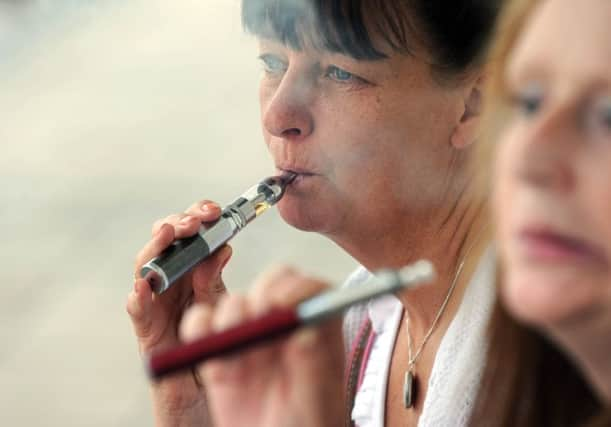Smokers sought for study on safety of e-cigarettes


E-cigarettes have gained in popularity in recent years but questions remain over the long-term implications of their use.
A team of scientists from Dundee University will compare the effects of e-cigarettes and traditional cigarettes on blood vessel function, which is an important health indicator.
Advertisement
Hide AdAdvertisement
Hide AdToxins in tobacco can cause damage to blood vessels, as well as narrowing their walls – which reduces blood flow and can cause heart disease, heart attacks and stroke.
Dr Jacob George, from Dundee University’s School of Medicine, said: “E-cigarettes are sold on the principle that they are a much safer alternative to traditional cigarettes because they don’t contain harmful substances like tobacco and tar. However, many e-cigarettes contain nicotine, which may be harmful to blood vessels itself.
“We want to see whether the e-cigarettes are better for blood vessel function compared to traditional cigarettes. Many people seem to think that this is the case but as yet there is no hard scientific evidence to prove this.”
Around 20 per cent of Scots smoke, leading to 10,000 related deaths each year.
Study participants, who must have smoked 15 cigarettes a day for two years, will either continue smoking normally or switch to e-cigarettes for one month.
One group would continue to smoke tobacco cigarettes, another would switch to e-cigarettes with nicotine and flavour, while a third will use flavour alone.
Mike Knapton, associate medical director at the British Heart Foundation, which is funding the research, said: “Nearly one in five adults in the UK smokes and we know that an increasing number of people are turning to e-cigarettes to help them quit.
“This shows the fundamental importance of this unique study, which intends to shine a light on the risks associated with the use of e-cigarettes and whether they are in fact a safer alternative.”
People with a history of cardiovascular disease, women who are pregnant or breast feeding and anyone with a nut allergy cannot take part in the research.